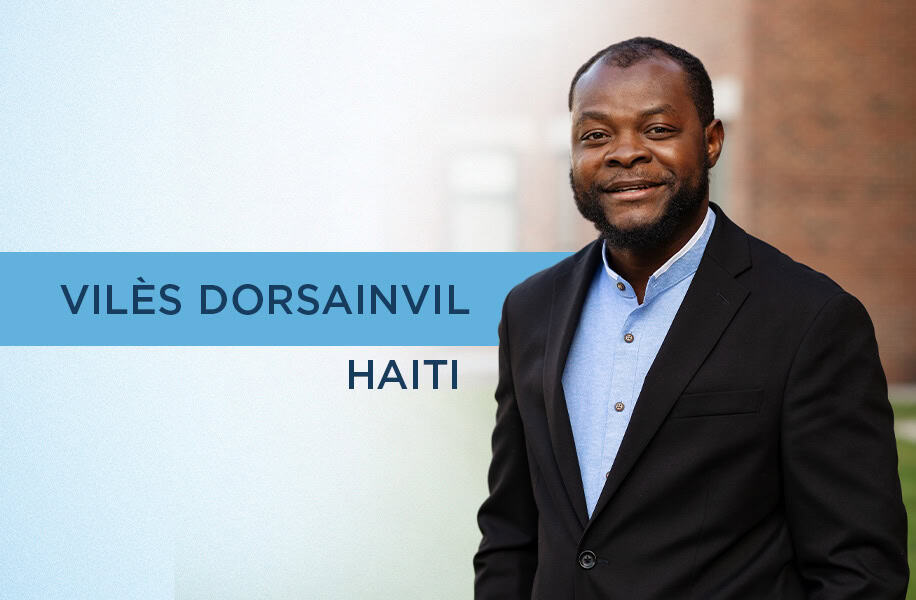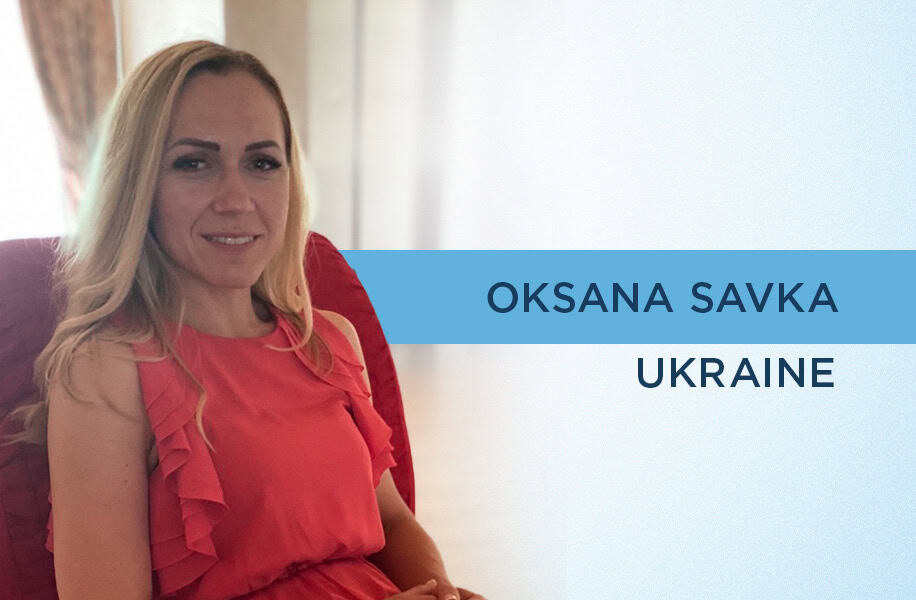|
Getting your Trinity Audio player ready...
|
The Bible describes the church as one body with many parts — when one part suffers, the whole body feels it. Today, many immigrants, including fellow Christians, face the threat of deportation in the U.S., and the church cannot look away. Scripture calls us to “suffer with” those who are vulnerable, including individuals whose legal status, such as Temporary Protected Status (TPS), may be at risk.
In partnership with the NAE, the U.S. Conference of Catholic Bishops and the Center for the Study of Global Christianity, World Relief has released One Part of the Body: The Potential Impact of Deportations on American Christian Families. This report invites believers to consider the real consequences of mass deportations — not just for individuals, but for the church — and to respond with justice, compassion and hope.
The stories that follow highlight three Christians with TPS who, despite long-standing contributions to their communities, now face the looming threat of deportation.
Vilès Dorsainvil: Haiti

As executive director for the Haitian Community Help & Support Center in Springfield, Ohio — as well as a community liaison for Clark County Commissioner’s Office — Vilès Dorsainvil fielded more media calls in late 2024 than he ever would have wished.
But as a native Haitian and minister, when he looks back on that time, he looks with a pastor’s heart, concerned primarily for Haitian people living in that city. The Springfield community was deeply disturbed with bomb threats and other panic after social media rumors about Haitian migrants there were repeated in presidential debates. “It was disturbing,” he says. “It was panicking, because mentally speaking, the Haitians here — they were not ready for that… It was a traumatizing time for them.”
As a high schooler, Vilès watched his father, to whom he was very close, suffer a stroke and eventually die. Vilès found solace in Christ after his death: “I came to realize that giving him my life and my heart was the best thing I could do.” He decided to go into ministry and enrolled in a Moravian seminary located in Jamaica, the United Theological College of the West Indies. Haitian gangsters had started taking over the streets and targeting people, especially professionals who were assumed to have more money.
“Many of us coming — it’s not because we were looking for jobs,” says Vilès. “We were being pushed away by the situations. You had to choose between your life and the job you had.” He left Haiti with a tourist visa on New Year’s Eve, 2020, and eventually the Biden administration approved TPS for Vilès and other Haitians.
“I am a community-oriented person. I am a Christian and I love Jesus. I like to serve people. I think serving people is my calling,” says Vilès. Still, he has no intention of starting over in Haiti. If he had to leave the country, he would head the opposite direction for Canada, where he has some family.
Vilès attends Central Christian Church in Springfield, Ohio, and occasionally preaches there.
Oksana Savka: Ukraine

Americans still ask Oksana Savka whether the war in Ukraine is still going on.
Yes — every day there are bombings, she tells them. But it’s not in the news anymore.
Oksana’s husband pastored a church in Ukraine for 13 years, and their ministry was a model for any couple in church leadership. They hosted Bible studies and counseled married couples; she taught Sunday school and served in the worship band; they had two children (including one adopted), founded an orphan ministry through Eastern European Ministry International, and placed 500 children in their forever families over the course of 20 years. For the first seven months of the war, Oksana and Peter often hid in the basement of their apartment during bombings. But they also helped refugees through their local church, providing meals and clothing to over 1,000 people.
To their great relief, the couple escaped to the U.S. to join their daughter and grandkids in 2022. Now Oksana works at World Relief helping other Ukrainians resettle, which provides a powerful bond for newcomers; Oksana entered through the Uniting for Ukraine parole sponsorship program, and subsequently was granted Temporary Protected Status.
“I feel like Joseph from the Bible story. God sent me first. I still have this feeling that God prepared the whole way for me just to be able to help other Ukrainians.”
Oksana had mixed feelings watching the 2024 campaign. She recalls former President Trump’s promise to stop the war, but wonders: If he can accomplish that, but then kicks her out of the U.S., what then?
Oksana sees many families who wish they could go back; coming to the U.S. was not the dream of their life. But, she says, “If there would be some kind of pathway [to residence] for those who want, people would really, really appreciate this. They can be very good workers and good citizens for United States. I don’t know how to prove to Trump and his administration; we are good people.”
Ana & Bernardo: El Salvador
Contrary to the stereotypes of many migrants, Ana and Bernardo feel at times they might have been better off, professionally, had they been able to stay in El Salvador.
At the end of the civil war there, Bernardo says, gangs would kidnap very wealthy people and ask for a million dollars ransom. But those millionaires all left the country, leaving the white-collar professionals to be targeted. And Ana and Bernardo are both dentists.
As Ana was leaving a shift at their dental clinic one day in 1994, a man demanded her car. He pushed her to the passenger seat with a gun at her stomach and drove her around for four hours. Miraculously, after pleading with him, he let her go.
After that, Ana didn’t want to drive or go anywhere or be alone. Sleep was hard to come by.
At the time they had a beautiful house, the clinic, and Bernardo was a director for the dental school, working in the clinic all day doing oral surgeries. He had also been elected twice as a member of the Salvadoran Dental Society (similar to the American Dental Association in the U.S.). They were active in their Catholic church.
But the kidnapping was too much. They both agreed to leave it all and come to the U.S., where during their first few years Ana worked overnight doing graveyard shifts at Taco Bell and Target so that one of them could always be with the kids. Earthquakes prompted the U.S. to offer TPS to individuals from El Salvador in 2001, which applied to Ana & Bernardo. They have been able to live and work lawfully for more than two decades now, as healthcare workers, but they realize that could change.
“Hearing a presidential candidate say that people on TPS are delinquents, that they belong in an asylum … it made me sad and frustrated,” says Bernardo. “I just think, how can a person that is going to be president of a great, great nation not research what people on a certain immigration status are really like?” Those on TPS are thoroughly fingerprinted and vetted every 12 or 18 months when their status is renewed. They also pay a hefty fee every time to be able to live and work here.
Their eldest daughter was a pastor for almost a decade before feeling compelled to work in helping immigrants and refugees full time after experiencing the attempted cancellation of TPS during the first Trump administration. Their son is now a youth pastor of a church in Texas, along with his wife. Bernardo plays drums and bass guitar in the worship ministry at their current church, and Ana helps with the kids, in the greeting ministry, and elsewhere, along with their youngest daughter who is a U.S. citizen.
“Even though TPS has been extended for a year and a half, [for] which we’re so thankful and blessed, that decision can be reversed or stopped. So there’s so much uncertainty,” Bernardo says. “If we keep on looking at that, we’re going to sink in the water just like Peter started to do when he took his eyes off of Jesus. So we try to keep running the race with our eyes on the prize. And that’s all we have.”
As followers of Christ, we are called to stand with those who are vulnerable, advocate for justice and affirm the dignity of every person made in God’s image. The stories you’ve just read are not isolated, they represent thousands of lives hanging in the balance. You can help ensure that our immigrant brothers and sisters with Temporary Protected Status are not forced to leave the communities they serve and the churches they strengthen.
Take a moment today to urge your lawmakers to protect TPS holders by using our simple advocacy tool. Your voice matters — because when one part of the Body suffers, we all do.
